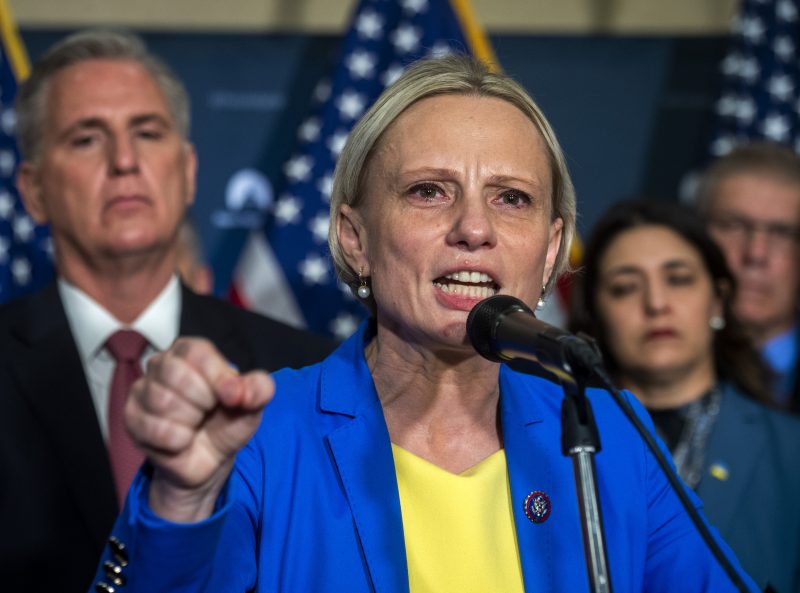In a recent turn of events, the Ukrainian-born Republican candidate, Victoria Spartz, has faced criticism for her voting record in relation to Ukraine amidst her victory in the primary race for Indiana’s 5th Congressional District. Spartz, who hails from Ukraine, entered the political arena with a compelling personal narrative as an immigrant who has achieved the American dream. However, her voting decisions on issues concerning Ukraine have raised eyebrows within the Ukrainian community.
One of the key points of contention revolves around Spartz’s stance on issues affecting Ukraine, particularly in light of the ongoing conflict with Russia. Critics argue that her voting record does not align with the interests of Ukraine or the Ukrainian-American community. They point to instances where she supported certain legislative measures that could be perceived as contrary to Ukraine’s well-being.
Spartz’s defenders, on the other hand, emphasize her broader support for conservative policies and her commitment to upholding American values. They argue that her votes should be viewed in the context of her overall political philosophy rather than being solely scrutinized through the lens of her Ukrainian heritage.
The debate surrounding Spartz’s Ukraine-related votes underscores the complex intersection of personal background, political representation, and the broader interests of constituents. As a Ukrainian-American candidate, Spartz finds herself navigating a delicate balance between honoring her heritage and advocating for the diverse interests of her constituency.
Looking ahead, Spartz’s victory in the primary race sets the stage for a competitive general election campaign. Her ability to address the concerns of Ukrainian-Americans while also appealing to a broader base of voters will be crucial to her success in the upcoming election.
In conclusion, Victoria Spartz’s journey as a Ukrainian-born candidate facing criticism for her Ukraine-related votes highlights the intricate dynamics of identity, representation, and political decision-making. As she moves forward in her political career, she will need to engage with these complexities thoughtfully and effectively in order to best serve her constituents and uphold the values she believes in.



























